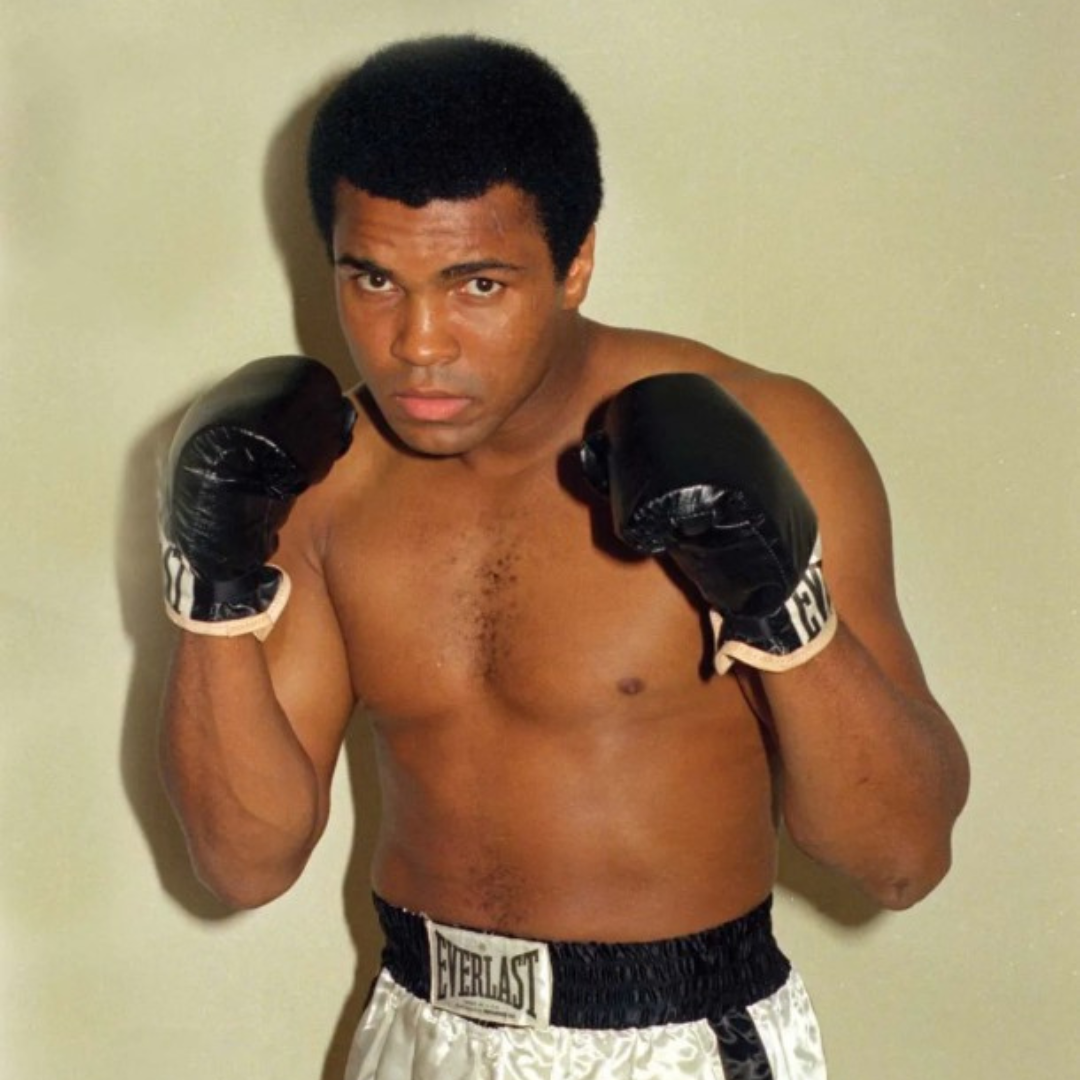Cassius Clay (Muhammad Ali)
Articles
Historical Quotes
View more from News & Articles or Primerus Weekly

By Tom Kirvan
He promised to “float like a butterfly, sting like a bee,” a boast that added intrigue to what many sports columnists called the greatest upset in boxing history.
A talented 22-year-old boxer named Cassius Clay was the man behind the prediction, recording a technical knockout of defending heavyweight champion Sonny Liston in a stunning victory on February 25, 1964 in Miami Beach.
A native of Louisville, Clay first made a name for himself at the 1960 Summer Olympics in Rome, winning the gold medal in the light heavyweight class. After turning pro, he won 19 consecutive bouts to earn the right to face Liston, who entered the showdown as an 8 to 1 betting favorite. But Liston, a two-time heavyweight champ failed to silence his talkative foe, suffering a humiliating defeat to Clay, who within a matter of weeks would change his name to Muhammad Ali after converting to Islam.
Ali would successfully defend his heavyweight title nine times before he was stripped of his crown in 1967 by refusing induction into the U.S. Army as a conscientious objector to military service during the Vietnam War. Four years later, the U.S. Supreme Court overturned Ali’s draft evasion conviction, paving the way for him to regain his title in 1974 with a win over George Foreman in Zaire, a bout that was known as “The Rumble in the Jungle.”

Long considered the greatest boxer in history, Ali had a gift for gab and a knack for poetry that enchanted fans around the globe, making him one of the most popular figures in the world. One of his early rhymes: “This kid fights great; he’s got speed and endurance, but if you sign to fight him, increase your insurance.” A master at trash-talking, Ali was never at a loss for words until he was diagnosed with Parkinson’s disease, a debilitating ailment that led to a slow decline and ultimately his death in 2016 at the age of 74.
Despite his long battle with Parkinson’s, Ali was a renowned humanitarian and philanthropist, supporting a variety of charitable causes that further endeared him to fans worldwide. He received the Presidential Medal of Freedom in 2005, nearly a decade after being chosen to light the Olympic flame during the 1996 Olympics in Atlanta.
Among some of his best verbal offerings:
*AP Images. "Muhammad Ali, 1974." [Image]. Encyclopædia Britannica, accessed February 14, 2025 from https://www.britannica.com/event/American-civil-rights-movement/Du-Bois-to-Brown#/media/1/15252/226332